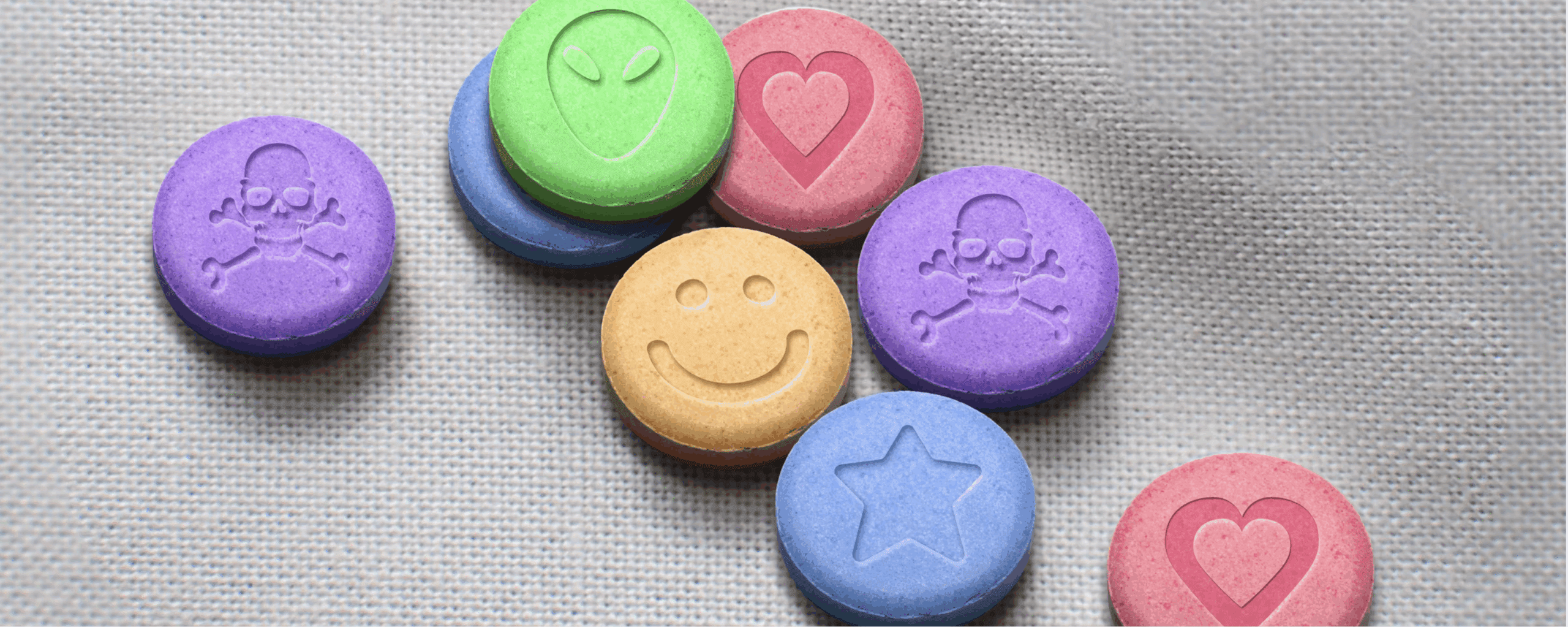In the world of recreational drug use, the terms Ecstasy and Molly are often used interchangeably. You’ve probably heard them mentioned at parties, concerts, or in pop culture—but are they actually the same drug? The answer is both yes and no. While both Molly and Ecstasy contain the same primary active ingredient—MDMA—their forms, purity, and potential risks can vary dramatically. Understanding the difference is key to recognizing the dangers associated with these popular substances.
What Is MDMA?
MDMA stands for 3,4-methylenedioxymethamphetamine. It’s a synthetic psychoactive drug that acts as both a stimulant and a hallucinogen, known for boosting energy, enhancing sensory perception, and creating feelings of emotional closeness and euphoria.
Originally developed for medical use, MDMA gained popularity as a party drug due to its powerful mood-altering effects. It’s commonly associated with the club scene, raves, and music festivals—but it’s far from harmless. Some people may microdose the drug, but that does little to curb the potential dangers.
What Is Molly?
Molly is the street name for what’s claimed to be “pure” MDMA, typically sold as a white powder or crystalline substance in capsules. The name “Molly” comes from the word “molecular,” implying that it’s the pure molecular form of MDMA without any additives.
However, the promise of purity can be misleading. Studies have shown that Molly is frequently cut with other substances, such as:
Methamphetamine
Synthetic cathinones (“bath salts”)
Caffeine
Ketamine
Fentanyl
Even when sold as “pure,” Molly may contain toxic contaminants that significantly increase the risk of overdose or adverse effects. It doesn’t last very long in your system, but the effects can be intense.
Looking for quality treatment for substance abuse and mental health that’s also affordable? Aliya Health Group's treatment facilities accept most major insurance providers. Get a free insurance benefits check now!
Check Your CoverageWhat Is Ecstasy?
Ecstasy usually refers to MDMA that has been pressed into tablet or pill form, often with added substances to enhance or modify its effects. Pills may come in various colors, shapes, and logos to make them more appealing—especially to younger users.
Because it’s a street drug, the composition of Ecstasy is unpredictable. Some tablets may contain little to no MDMA at all. Instead, they might be filled with other psychoactive or toxic compounds that can lead to dangerous side effects, including seizures, heart failure, or death.
Key Differences Between Molly and Ecstasy
| Feature | Molly | Ecstasy |
|---|---|---|
| Form | Powder or capsule | Tablet or pill |
| Claimed Purity | Marketed as pure MDMA | Often mixed with other substances |
| Risk of Contaminants | High—despite claims of purity | Very high—often heavily adulterated |
| User Perception | Seen as cleaner or safer | Seen as riskier or more intense |
The biggest takeaway? Neither form is safe—especially because users have no way of knowing exactly what they’re taking.
Get confidential help from our addiction and mental health treatment facilities located across the United States. Call to join one of our quality programs today!
Speak With Our Admissions TeamHealth Risks of MDMA Use
Whether you take Molly or Ecstasy, MDMA use comes with real dangers. Short-term effects may include:
Dehydration
Elevated heart rate and blood pressure
Muscle tension and jaw clenching
Anxiety and panic attacks
Visual and auditory hallucinations
Nausea and vomiting
MDMA also interferes with the body’s ability to regulate temperature, which can lead to dangerous overheating (hyperthermia). Long-term use is associated with brain chemistry imbalances, memory problems, sleep disturbances, and even depression or suicidal thoughts.
Can You Overdose on Molly or Ecstasy?
Yes. Taking too much MDMA—or using it in combination with other drugs or alcohol—can lead to overdose. Signs of an MDMA overdose include:
Seizures
Irregular heartbeat
High body temperature
Loss of consciousness
Organ failure
Death
Because of the unknown potency and added substances, overdoses can happen even with a single pill or capsule.
When Does Use Become a Problem?
If you or someone you know is using Molly or Ecstasy regularly, seeking out higher doses, or mixing drugs to maintain the high, it may be time to consider professional help. Party drug use can escalate quickly, leading to physical health problems, mental health issues, and addiction.
Get Help for MDMA or Party Drug Abuse
Our addiction treatment programs are designed to help individuals struggling with MDMA and other substance use disorders. We offer:
Medically supervised detox
Inpatient and outpatient treatment options
Mental health support and therapy
Aftercare and relapse prevention resources
You don’t have to navigate recovery alone. Our compassionate team is available 24/7 to support you or a loved one in taking the first step toward healing.








